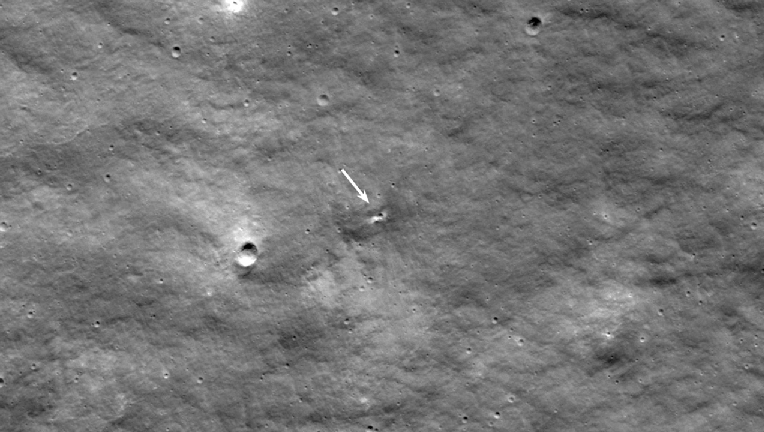NASA spacecraft spots likely crash site of Russia's lunar lander

During the descent to the surface, the Russian spacecraft Luna 25 experienced an anomaly that caused it to impact into the southwest rim of Pontécoulant G crater on Aug. 19, 2023, at 7:58 a.m. EDT (11:58 a.m. UTC). This image is 1,100 meters wide, an (NASA’s Goddard Space Flight Center/Arizona State University)
CAPE CANAVERAL, Fla. - A NASA spacecraft around the moon has found the likely crash site of Russia’s lost lunar lander.
The Luna 25 lander slammed into the moon last month, a harsh end to Russia’s first moon mission in almost half a century. Based on observations by its Lunar Reconnaissance Orbiter, NASA said Thursday that it appears the impact created a crater 33 feet (10 meters) across.
This fresh crater is about 250 miles (400 kilometers) short of the spacecraft’s intended landing site at the lunar south pole, and farther north. NASA's spacecraft found no evidence of a crater in this spot in pictures taken during a flyover last year.
It's located on the steep inner rim of an ancient and considerably larger crater.
Since the newfound crater is close to where scientists believe Russia's lunar lander crashed, "it is likely to be from that mission, rather than a natural impactor," NASA said in a statement.
Meanwhile, India’s rover is exploring the moon’s south polar region after successfully touching down a few days after Russia’s failure. India became only the fourth country to pull off a lunar landing.
___
The Associated Press Health and Science Department receives support from the Howard Hughes Medical Institute’s Science and Educational Media Group. The AP is solely responsible for all content.

